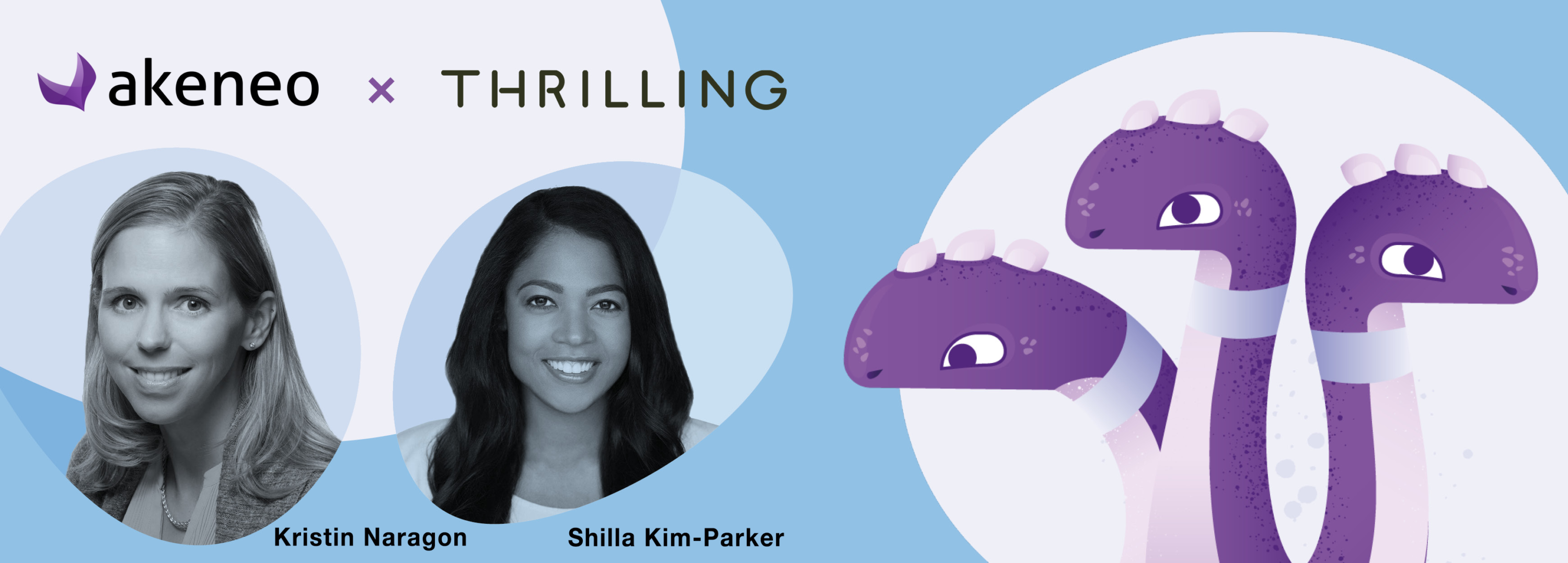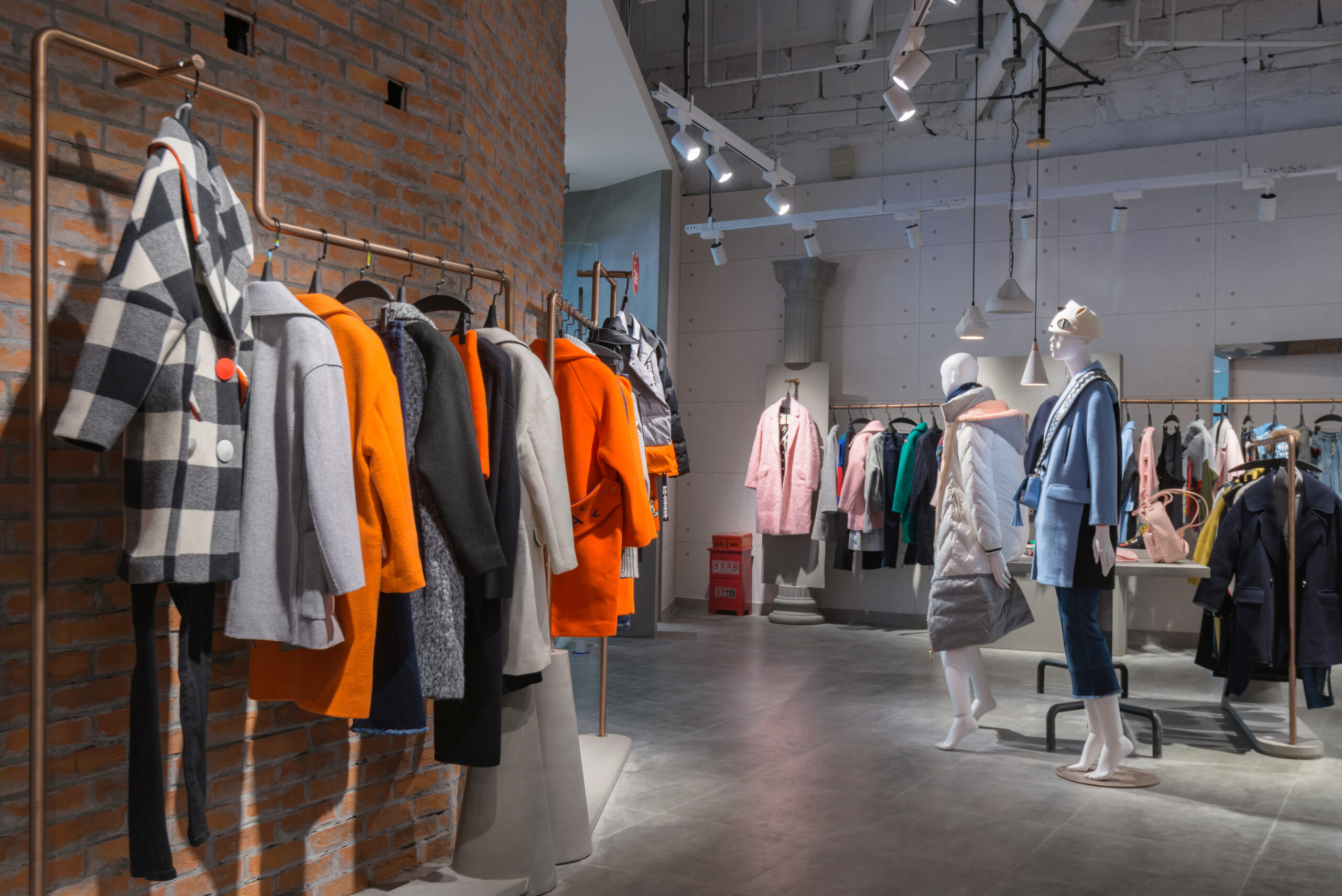Kristin: As you had shared elsewhere, there are more secondhand stores across the US than Starbucks and McDonalds combined – yet 99% of these stores are completely offline. It’s remarkable how Thrilling is helping them go online for the first time, while helping small business owners. What are some of the key challenges you’ve seen in their eCommerce transformation? Such as digitizing catalogs?
Shilla: The biggest challenge is time - these small business owners are usually the sole breadwinners for their households and are also usually the sole employees. The amount of work it takes to manage a vintage business can feel overwhelming. These owners have on average 10,000 individual SKUs of inventory, and they have to be the accountant, the inventory sourcer, the warehouse manager, the janitor, the cleaner, the tailor, the photographer, the fulfillment processor, and the marketer.
Our goal is to make the running of their businesses easier and more delightful. Our primary focus is on investing in innovations in our core technology, which makes the uploading of inventory quick and seamless. We do this by incorporating machine vision and machine learning as much as possible into the process, minimizing the amount of data entry required. But we are also offering wraparound services, such as the first on-demand eCommerce assistant service — think Uber for eCommerce uploading — to allow store owners to hire trained vintage assistants to prep and upload inventory onto Thrilling.
Kristin: I’m quite inspired by Thrilling’s mission in disrupting how people shop for apparel to combat environmental waste and harm. In one of the surveys we’ve done here at Akeneo, we also found that customers are increasingly prioritizing brands that feature social responsibility such as sustainable sourcing in their product information. What key product details are/should customers look for most when shopping secondhand clothes?
Shilla: The first and most important thing to ask is whether an item makes your heart skip a beat - that’s when you know it’s “the one.” A critical part of our mission is sustainability, and we want people to fall in love with their clothes and keep them for decades.
Second is fit, especially when shopping online. Our sellers almost always include the measurements and some notes about fit, but if you aren’t sure, just ask. And with Thrilling, you have the ability to try on and return if it’s not quite right.
Last, look for high quality brands or quality construction, so you know the item will stand the test of time. That’s the beautiful thing with vintage - these items were not only designed well, they have already survived 2+ decades. This is the reason why we do not accept any fast fashion or mass produced labels on our site - these items will not last more than a few washes, and they were often created in inhumane and unsustainable conditions.
Kristin: Mckinsey has concluded that the eCommerce industry experienced over 10 years of growth in the first three months of 2020. How has this contributed to Thrilling’s growth and where do you see the future from here?
Shilla: Our revenue grew 1700% over the last year, so we have absolutely experienced the continued mainstream adoption of both shopping secondhand, and shopping online. I see this as the beginning of the beginning - the resale industry is expected to grow from $30bn to $50bn within the next couple of years, exceeding growth rates for traditional retail. As consumers become more passionate about supporting sustainable shopping habits and small businesses around the world,
and as platforms continue to innovate the shopping experience to make it more relevant and delightful for shoppers, the growth of the industry will continue to compound.
Kristin: Marketplaces are huge in eCommerce right now and there is clearly an appetite for specialty, curated marketplaces like Thrilling. What trends are you taking note of in the world of eCommerce marketplaces?
Shilla: Curation and aided discovery are key. Marketplaces can quickly become overwhelming, and if you don’t serve up relevant items quickly, shoppers will leave. We do offer a free personal shopping assistant for those who would like a more human touch, but we have also hired a data advisor — the head of data and personalization at Spotify — to help us create a smart recommendation engine and better tailor our products to each individual’s tastes.
Kristin: The pandemic has shown how hard it is when work and family collide. You’ve got 2 young sons, while running a fast-growing startup –– how do you do it all? And how has your view on parenthood changed since 2020?
Shilla: There is no doubt it is challenging, and I think we are not honest enough — in public and out loud — about the difficulties of balancing parenthood and a demanding job. There is a lot of chaos behind the scenes, and just doing whatever we can to make it through the day. Part of it is accepting that you can’t be perfect in every arena at all times - having a sense of humor and some generosity with yourself is key. And I am fortunate to have a wonderful support system in my partner, my family, and my friends.
Kristin: You’ve had a long tenure in the corporate world, from JPMorgan to the Lincoln Center for the Performing Arts and Disney/ABC Television Group. What triggered you to take the plunge to be a founder and entrepreneur? What advice would you give to other working moms templating the move?
Shilla: First of all, it’s a risk, and everyone should be clear-eyed about it, especially if — like me — you don’t come from generational wealth. Sometimes entrepreneurship gets romanticized, and examples of success are held up without discussing the hidden safety nets from which the founders benefited. So it’s crucial to have an honest conversation with yourself and your family about what you want for your own life and the amount of risk you feel you can tolerate.
For me, I knew I had to take the jump. I’ve had that quote from Teddy Roosevelt stuck in my head for years: “It is not the critic who counts ... the credit belongs to the [wo]man who is actually in the arena, whose face is marred by dust and sweat and blood.” I wanted to be in the arena, building something with my own hands that helps push the world forward and strengthens our communities.
I had been working on the idea of Thrilling for years, conducting pilots and drafting the business plan on nights and weekends. Part of it was to test the idea as much as possible, but part of it was because I was waiting — waiting for it to feel less terrifying before I made the jump. And finally I just had this sudden realization - it’s now or never. Nothing is going to come along to make the path 100% secure. Do I want to take a leap of faith, or do I want to regret never giving myself a shot? I took the leap.




